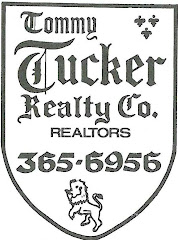
What's ahead in Washington D.C. after Health Care Reform. There is some Tax Policy discussions that caught our eye today.
This morning we received our R&P Report from National Write Your Congressman, which included a section that could impact S Corp and self-employed. Many in the Real Estate Industry are self-employed.
Tax Writers and S Corporations: Lawmakers looking for
revenue to offset the costs in a tax bill are taking a close look at certain
types of small businesses. They are considering a provision that would make it harder for owners of those companies to avoid paying employment taxes.
A similar provision that would have affected companies organized as S
corporations was included in a 2007 proposal. That provision would have required employees who are also owners of service businesses to pay self-employment taxes on their profits. (H.R. 4213)
To voice your opinion on this issue, go to www.nwyc.com.
We made a phone call to our local association, with some concerns about upcoming legislation this week in Washington D.C. Another item was relayed to us, which turned out to be false, but it highlights the frustration with current public policy discussions in Washington D.C. today.
What is Fact and what is Fiction?
There is a lack of accountability and transparency with Health Care Reform, current Banking Reform and how proposed legislation rules are being addressed, discussed and disclosed. In some cases, the rules will follow the Federal Legislation, which leads to transparency and accountability problems, like the following.
The following appears to be false, after receiving an E-mail about it earlier today:
Have you received this E-mail circulating on the Internet?
Real Estate sales taxIt appears that this printed article, which was shown in a E-mail circulating on the Internet and the Web Link above are untrue. With the lack of accountability and transparency in Washington D.C. today by those in the Administration and many in Congress, it's hard to know Fact vs. Fiction ...
Under the new health
care bill - did you know that all real estate transactions are subject to a 3.8% Sales Tax?
If you sell your $400,000 home, this will be a $15,200 tax. (The copy of the article in the E-mail had $200,000 home and a $7,600.00 hand written as tax.)
Health
law's heavy impact - Spokesman.com - March 28, 2010
Mar 28, 2010 ... From now on, the federal government will manage the health care of all Washingtonians. ... The Spokesman-Review The Pavilion. Health law's heavy impact. Paul Guppy Special to The Spokesman-Review ... (this is an Web link to the E-mail rumor)
Here was an explanation e-mailed from our State Association to our Local Association on this issue.
Sent: Mon Apr 26 11:45:47 2010
Subject: Re: Fw: Real Estate sales taxNo 4.0% "Sales Tax" on Home Sales In Recently Enacted Health Reform
Bill
Contrary to reports that are circulating widely on the Internet, there is
not a 4.0% "sales tax" or "transfer tax" on the sale of a home included in the
recently signed health care reform bill. The analysis underlying these reports
is incorrect and fails to take into account the interplay of the bill's
provisions with already existing real estate tax laws that remain
unchanged.
What was included in the health bill is a provision that imposes a new 3.8%
Medicare tax for some high income households that have "net investment income."
Any revenue collected by the tax is dedicated to the Medicare hospital insurance
program. This new tax will only apply to households with Adjusted Gross Income
(AGI) of more than $200,000 for individuals or more than $250,000 for married
couples. Since capital gains are included in the definition of net investment
income, an additional tax obligation might result from the sale of real
property.
In the case of the sale of a principal residence, the existing
$250,000/$500,000 exclusion from capital gains on the sale of a principal
residence remains unchanged. Consequently, even when the AGI limits are met, the new tax would not be applied to all capital gains that result from the sale of
a home. The new Medicare tax would only apply to any home sale gain realized in
excess of the $250K/$500K existing primary home exclusion that pushes the
filer's AGI over the $200K/$250K adjusted gross income limit.
The new Medicare tax will not take effect until January 1, 2013.
For more information on the new Medicare tax, please consult NAR's Health
Reform Q&A on this and other provisions of the new health reform law located
at www.realtors.org/healthreform.
End of E-mail
Information is deemed reliable but is not guaranteed and should be independently verified.









No comments:
Post a Comment